57 per cent of Singaporean men agree with the statement "we have gone so far in promoting women's equality that we are discriminating against men."
In comparison, 39 per cent of Singaporean women feel the same.
Overall, 48 per cent of Singaporeans shared such a sentiment, according to a study carried out by market research company Ipsos.
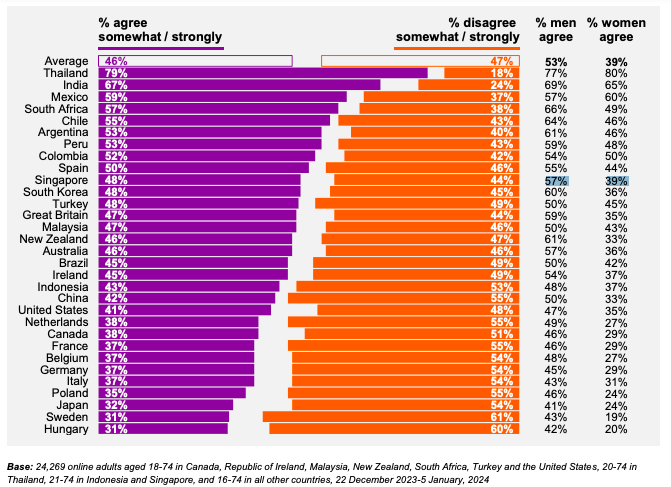 Source: Screenshot via Ipsos
Source: Screenshot via Ipsos
The Ipsos country manager for Singapore, Katherine Zhou, said according to a press release:
"It's revealing to see a majority believe that women's rights in Singapore have reached an adequate level, yet there is a significant gender difference in these perceptions.
The concern expressed by 48 per cent of respondents that the promotion of women’s equality might be discriminating against men is notable and warrants further examination."
58 per cent of Singaporeans think men are expected to do too much for gender equality
The study was done in collaboration with the Global Institute for Women’s Leadership at King’s College London for International Women’s Day.
It surveyed around 500 Singaporeans, aged 21 to 74, from Dec. 22, 2023, to Jan. 5, 2024. Respondents from 30 other countries were also interviewed.
The study also found that more than half of all Singaporean respondents, at 58 per cent, thought that men are expected to do too much to support gender equality.
When broken down by gender, this figure rose to 68 per cent for men while it stood at 47 per cent for women.
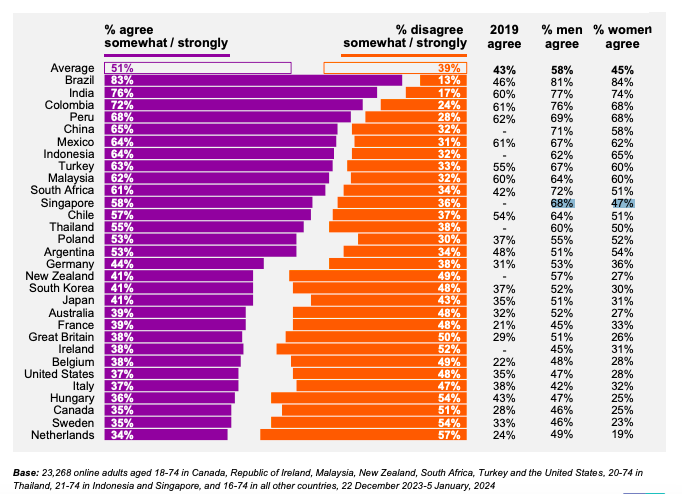 Source: Screenshot via Ipsos
Source: Screenshot via Ipsos
48 per cent of Singaporeans also said they were scared to speak up and advocate the rights of women over fear of what might happen to them — a figure that fell to 45 per cent for men and rose to 51 per cent for women.
However, 57 per cent of Singaporeans believe that women will not achieve equality in the country unless men take action to support women's rights too — a stance shared by 52 per cent of men and 62 per cent of women.
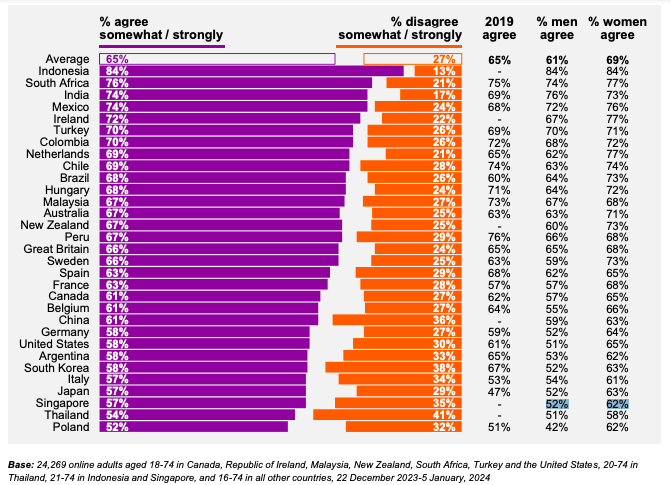 Source: Screenshot via Ipsos
Source: Screenshot via Ipsos
62 per cent believe Singapore has done enough for gender equality
In addition, 62 per cent of Singaporeans believe the country has gone far enough in giving women equal rights with men.
A breakdown of the data by gender found that 68 per cent of men and 55 per cent of women in Singapore felt the same.
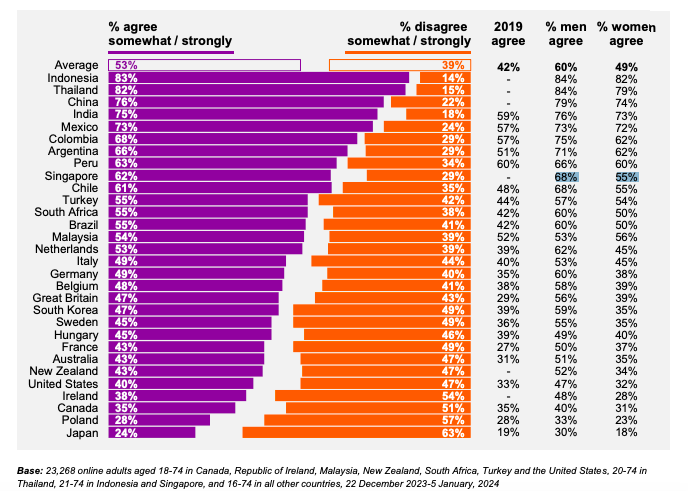 Source: Screenshot via Ipsos
Source: Screenshot via Ipsos
More Singaporeans prefer a male boss over a female boss
As for business, nearly two-thirds of Singaporeans think that both male and female leaders are equally good at creating a financially successful organisation (58 per cent) or an innovative company (60 per cent).
Among those with a preference for one gender, there is a significant difference between those that think male or female business leaders are better.
In both aspects of creating a financially successful company and an innovative one, 16 per cent think men are better, while only eight per cent think women are better.
As for the gender of their ideal boss, 36 per cent of Singaporeans said they preferred a man, while only 10 per cent said they preferred a woman.
However, the majority of respondents, at 51 per cent maintained a neutral stance, expressing no particular preference.
Majority of Singaporeans have no preference for either gender for their political leader
On the topic of whether Singaporeans preferred to have a men or women for their political leader, the majority, at 63 per cent, expressed no preference.
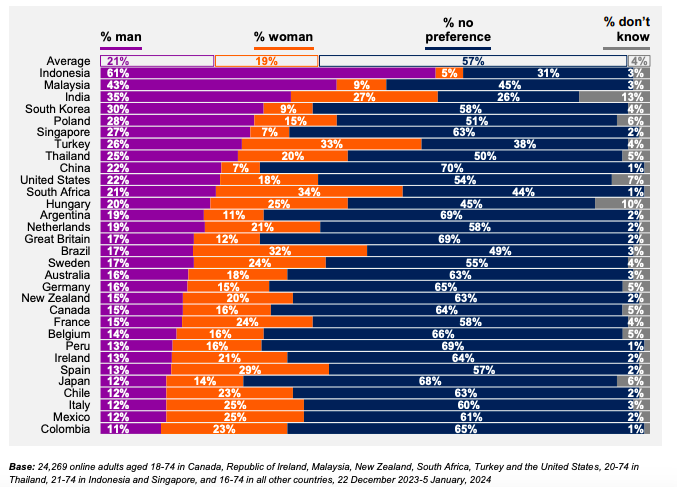 Source: Screenshot via Ipsos
Source: Screenshot via Ipsos
For specific issues, more Singaporeans thought that a male politician would be better than a female politician at addressing issues such as fighting crime (21 per cent versus six per cent), defending national security (24 per cent versus seven percent) and getting the economy back on track (15 per cent versus eight percent).
However, there were also issues where Singaporeans thought a female politician would do better than a male politician.
These issues include benefitting the less advantaged (15 per cent versus seven per cent), treating women fairly (24 per cent versus eight per cent), treating ethnic minorities fairly (12 per cent versus seven per cent), and treating individuals with LGBT+ identities fairly (13 per cent versus six per cent), among others.
However, the broad consensus among Singaporeans is that politicians of both genders are equally competent in various areas.
This includes being honest and ethical (58 per cent), ensuring fair treatment of ethnic minorities (57 per cent), respecting the climate (57 per cent), benefiting the less advantaged (57 per cent), and steering the economy back on track (55 per cent).
Top photo via Some Media/YouTube
If you like what you read, follow us on Facebook, Instagram, Twitter and Telegram to get the latest updates.



